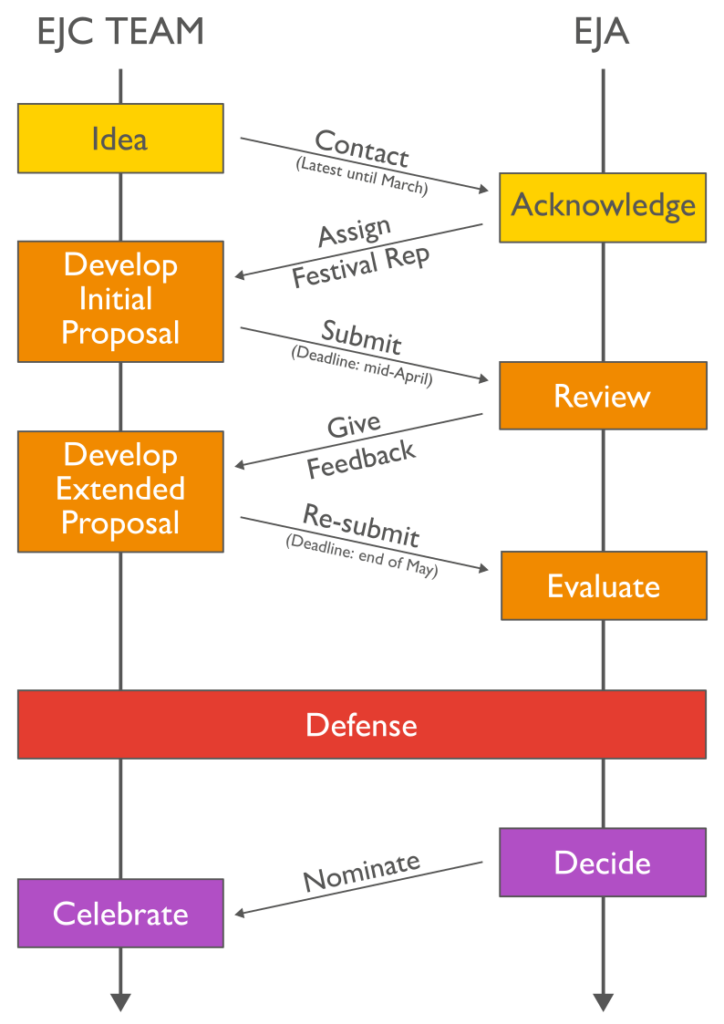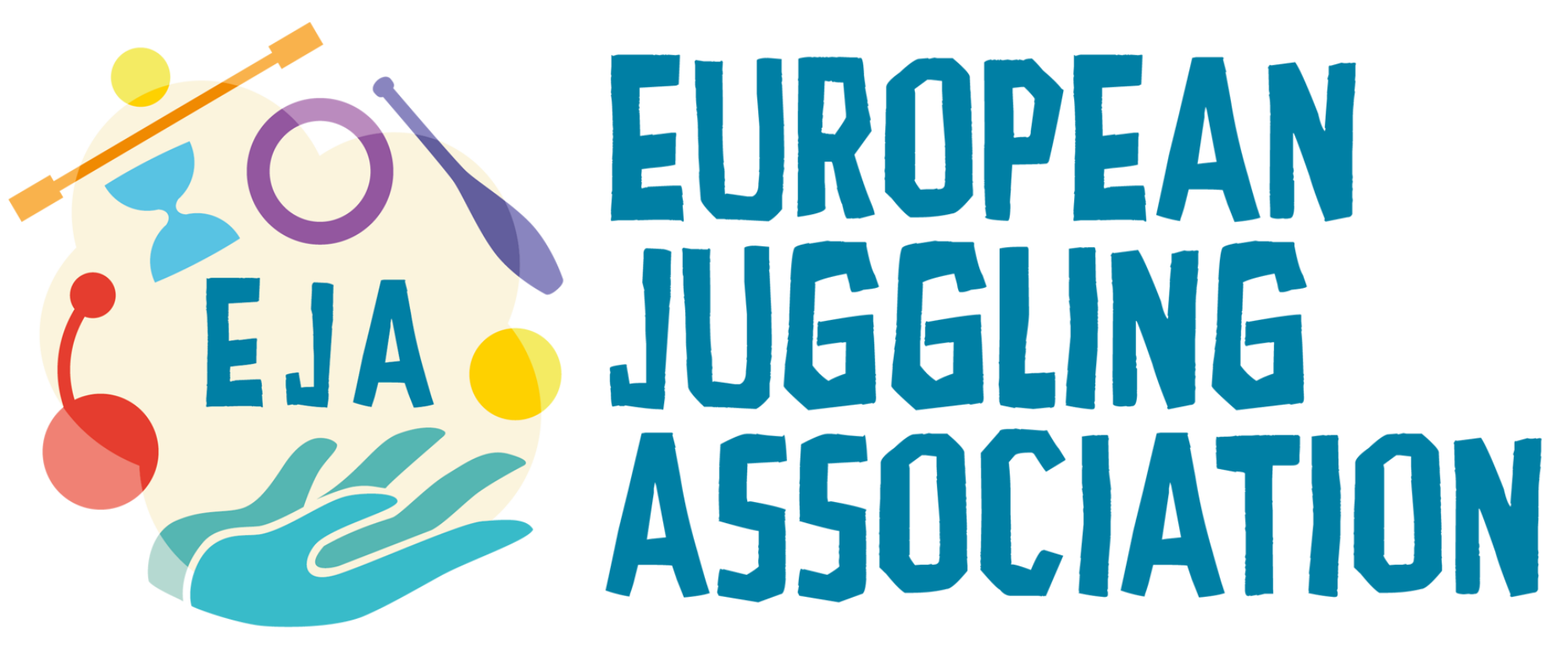Organizing the EJC is a unique opportunity to showcase your city and bring the juggling and circus community together for an unforgettable event. Hosting the largest gathering of its kind in Europe is an exciting challenge, and the EJA is here to support you every step of the way. With decades of experience, we provide guidance in planning, financing, and networking, helping you navigate the process and bring your vision to life. If you’re passionate about juggling and dream of hosting an EJC, reach out to us—we’re ready to help you make it happen!
Nomination Process
The nomination process is the first step that each potential EJC team must undergo. Only after being nominated by the EJA can the team become a candidate at the general assembly, where the community votes on the host for the EJC two years from then. The EJA serves as an impartial body during this process, evaluating each application to assess its potential for delivering a successful convention. This ensures that the chosen team has ample time and support to prepare for the event. If the nomination process doesn’t succeed this time, the EJA encourages the team to reapply the following year with a revised application and offers support throughout the process.

The nomination process involves collaboration and refinement, guiding teams from an initial idea to becoming a candidate for election. It consists of two key stages. First, the potential EJC team must develop a detailed proposal addressing essential questions about their plans, such as venue, team, legal considerations, and budget. These questions, outlined below, help the EJA assess the feasibility and preparedness of the proposal. Second, after the proposal has been evaluated, the team participates in a Defense. During this stage, the team presents their plans in greater detail and responds to critical questions from EJA members. Similar to a university thesis defense, this step ensures a thorough discussion and evaluation, preparing the team for the challenges of hosting a successful EJC.
Election
Each year during the General Assembly at the EJC, attendees vote to decide the location of the EJC two years ahead. Every participant has a vote and can support multiple candidate cities. The destination with the simple majority wins, shaping the future of the event.
Contracts
Proof of appointment: Once the EJC team elected at the General Assembly has submitted their association and contact information to the EJA, the EJA issues an official proof of appointment, granting them the right to organize the EJC.
Surplus agreement: It outlines how any potential surplus is managed, with a predetermined split between the organizing team and the EJA. The agreement also ensures that all surplus funds are used exclusively for juggling or circus-related activities.
Loan agreement (optional): The organizing team can request financial support from the EJA, which requires signing a loan agreement between both parties.
